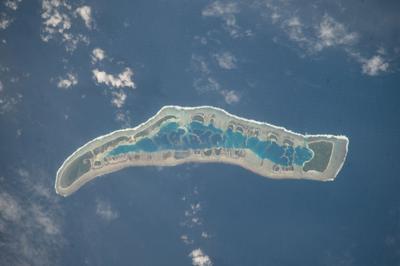While the Forum has been criticised for continually sidestepping the region’s big political issues, the 2011 leaders’ communiqué contained at least one element worth discussing. This year’s document stressed the importance of moving toward a ‘blue economy’.
The blue economy is a growth model based around the sustainable use of the region’s considerable marine resources. In many respects, this mirrors the green growth model — which aims to achieve strong economic growth and environmental protection — but with a small-island, developing-state pertinence.
At the 2011 Pacific Environment Forum in Apia, Samoa’s Minister of Natural Resources and Environment captured the region’s sentiment: ‘We in the Pacific are … adopting a “Green Economy in a Blue World” approach — as an inclusive and practical way of promoting the right kind of growth [and] meeting our key challenges’. The Pacific has also succeeded in getting the blue economy into the framework of next year’s UN Conference on Sustainable Development (Rio+20), and discussions in early November at UNESCO in Paris furthered its inclusion.
A blue economy is particularly apposite for the region, with its abundant and underutilised marine resources; the region’s seafloor contains substantial deposits of rare-earth metals, and the Western and Central Pacific tuna fishery is the world’s largest. The region is also undoubtedly blue; Kiribati, for example, has a larger exclusive economic zone than India’s land area. In fact, these nations are better termed large-ocean states than small-island countries.
But despite the model’s obvious appeal to the region, can moving to a blue economy result in sustainable development?
One potential driver of growth is seafloor mining. This has received a lot of recent attention, in part because of a Nature Geoscience paper published on the extent of rare metals in the Pacific’s seafloor. The deposits have gained attention as high prices make extracting stocks economically viable, and China — currently the world’s largest supplier — has blocked trade in the past due to political reasons, making the Pacific an interesting alternative.
But as offshore companies with advanced technology are required for mining, developing strong institutions — particularly foreign investment review mechanisms, resource tax architecture and environmental assessment processes — will be vital for ensuring extraction results in blue economic growth.
The fishing industry is also touted as a driver of the blue economy. It is a key source of revenue for many Pacific island countries, particularly equatorial nations, but largely from foreign fishing fleets paying for the right to fish tuna. This framework is clearly suboptimal, as only five per cent of the catch’s value is estimated to remain in the region. Increasing domestic fishing and processing capacity will lead to less profit outflows, although this will require large investments in domestic fishing fleets and human capital.
For fisheries to contribute more to the region’s economies, institutional reform and strengthening is also necessary. Building regional monitoring capacity to reduce the incidence of illegal and unreported fishing, and developing strong fisheries management to ensure harvests are at the maximum economic yield will be especially important in this context.
In the short term, lobbying for higher access fees to develop nascent domestic fishing industries is probably the best move. But access agreements are locked into multilateral treaties and bilateral agreements, and thus effective diplomacy is crucial for obtaining more than the current five per cent.
With global attention on the back of the Pacific Islands Forum and blue economic growth on the agenda at Rio+20, this is an opportune moment for the region to develop blue industries through pushing for associated development assistance, attracting private investment in a range of blue industries and lobbying for a higher share of fisheries rents. Achieving these alongside deep institutional reform, at both the country and regional level, will ensure that moving toward a blue economy results in economic development and environmental protection.
Benjamin Sims is a Research Associate at the Pacific Institute of Public Policy, and a joint Master of Environmental Management and Development/Master of Diplomatic Studies candidate at ANU.

